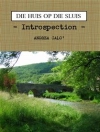Storms, floods, fires, tsunamis, earthquakes, tornadoes, and other disasters seem not only more frequent but also closer to home. As the world faces this onslaught, we have placed our faith in “sustainable development, ” which promises that we can survive and even thrive in the face of climate change and other risks. Yet while claiming to “go green, ” we have instead created new risks, continued to degrade nature, and failed to halt global warming.
Unnatural Disasters offers a new perspective on our most pressing environmental and social challenges, revealing the gaps between abstract concepts like sustainability, resilience, and innovation and the real-world experiences of people living at risk. Gonzalo Lizarralde explains how the causes of disasters are not natural but all too human: inequality, segregation, marginalization, colonialism, neoliberalism, racism, and unrestrained capitalism. He tells the stories of Latin American migrants, Haitian earthquake survivors, Canadian climate activists, African slum dwellers, and other people resisting social and environmental injustices around the world. Lizarralde shows that most reconstruction and risk-reduction efforts exacerbate social inequalities. Some responses do produce meaningful changes, but they are rarely the ones powerful leaders have in mind.
This book reveals how disasters have become both the causes and consequences of today’s most urgent challenges and proposes achievable solutions to save a planet at risk, emphasizing the power citizens hold to change the current state of affairs.
Table of Content
Preface
Acknowledgments
Introduction: “It Won’t Be Easy, But We Have Little Choice”
1. Causes: “Disasters Happen for a Reason”
2. Change: “They Want to Build Something Modern Here”
3. Sustainability: “They Often Come Here with Their Talk About Green Solutions”
4. Resilience: “They Say That We Must Adapt”
5. Participation: “They Want Us to Participate in the Construction of I-Don’t-Know-What”
6. Innovation: “We Need Something Really Innovative, They Said”
7. Decision-Making: “We Want to Be Able to Make Our Own Decisions”
8. Humility: “The Damn Circumstance of Water Everywhere”
Notes
Index
About the author
Gonzalo Lizarralde is a professor of architecture at the Université de Montréal, where he holds the Fayolle-Magil Construction Chair in Architecture, Built Environment, and Sustainability. He is the director of the Canadian Disaster Resilience and Sustainable Reconstruction Research Alliance. His books include
The Invisible Houses: Rethinking and Designing Low-Cost Housing in Developing Countries (2014).












